Joan Sutherland Theatre, Sydney Opera House
February 17, 2015
“Where are we?” asks a morphine addled Faust in the final act of Sir David McVicar’s take on Gounod’s version of Goethe. “In my domain!” replies his Satanic companion, revealed preening himself on the stage of a Parisian theatre. The French is actually “dans mon empire”, an apposite choice of term given the director’s temporal relocation of the action to the fag end of the reign of Napoleon III.
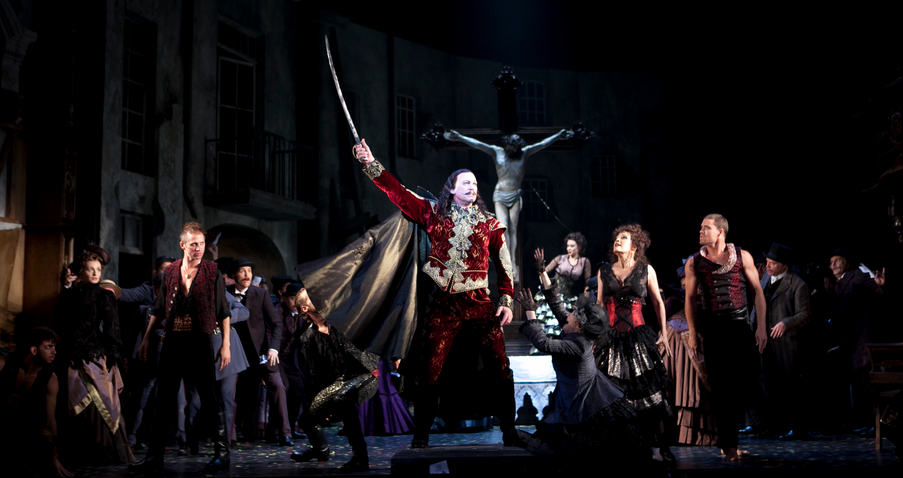
That juxtaposition of Méphistophélès’ sinful, sexual world of theatricals (complete with drink, drugs, pimps and whores) with the buttoned-up bourgeois morality of Second Empire France is what interests McVicar and thus his would-be decadent, decaying Doctor. In this production, church and state are interchangeable, but it’s the latter that wields the power if the final image is anything to go by. Either way, it all works a treat, making sense of Faust’s journey from nouveau cradle to grave without recourse to nonsensical mysticism and magic.
In McVicar’s realisation, Méphistophélès is a shyster showman, shape-shifting from dandy to pimp to pusher and even managing a fetching turn in full moustachioed drag. His demons (a terrific bunch of extra actor/dancers) are on hand to thumb their noses at the social mores of the times. Encouraging his protégé’s journey from seducer to murderer to drug addict, the British director’s gloss on the traditional ‘fallen angel’ gives this lengthy cautionary tale a much-needed injection (pardon the pun) of Zola-esque realism and a healthy dose of gothic horror.
Designer Charles Edwards’ majestic period sets, beautifully lit in gaslight-infused tones by Paule Constable, capture perfectly that quality of faded magnificence and tawdry painted theatrical glories. It’s a big five-act show with multiple locations, some of them surprising additions to Gounod’s original. The dance at the inn becomes Hell’s Cabaret complete with sleazy dancers skilfully negotiating a 3/4 can-can (no mean feat) in Michael Keegan-Dolan’s smart choreography. The riotous ballet, in which Faust is shown the consequences of his actions, is a sort of Les Sylphides on smack and comes complete with catcalling Jockey Club and a full-scale orgy!
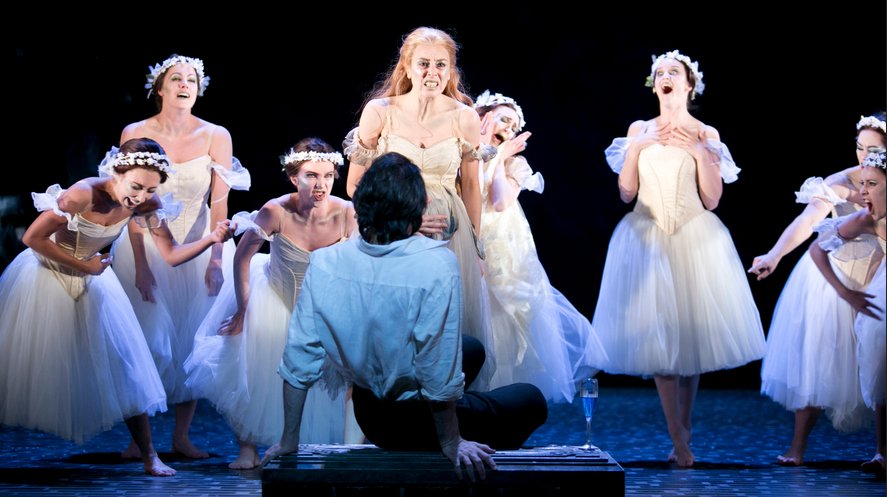
In the title role, Opera Australia’s Faust is the rapidly rising star American tenor, Michael Fabiano, and from his first clarion cry of “Salut! Ô mon dernier matin!” you can tell why he’s a hot property on the world’s stages right now. It’s a strong, bright instrument, easy at the top with bags of power. Salut! Demeure chaste et pure was beautifully shaped, full of light and shade, and with a ringing top note nicely connected to the rest of the voice. He’s a good actor as well, capturing the initial pathos of a man whose body no longer obeys his mind and bursting into revivified virility like a 1,000-watt charge of electricity.
Of course, they say the devil gets the best tunes. Be that as it may, in Faust he certainly gets a lot of them, and Teddy Tahu Rhodes is in his absolute element, tall, saturnine, worldly. McVicar’s ‘devil’ is a master trickster who wears a crucifix and laughs at superstition. Tahu Rhodes carries out his brief, to command the stage, with considerable charm. And vocally he’s on excellent form (the best I’ve heard him in a while), the tessitura of the role fitting him like a glove. His full, firm bass powers over the orchestra. Le Veau d’Or is a stentorian tour de force, the Sérenade with its hollow laughter a sardonic delight. Vocally he’s well matched with Fabiano, their duets very nicely balanced.
First discovered as a barmaid at the Cabaret L’Enfer, Nicole Car adds another leading role to her growing list of accolades as Marguerite. She captures the innocence of this naïve young woman with an engaging freshness and sings the role with an effortlessness that belies its considerable demands. Her King of Thule is warm and full, her Jewel Song sounds less treacherous at the top than is often the case. She makes an excellent case for Marguerite as a vehicle for a true lyric soprano, and it’s a pleasure to hear such an instinctive command of the music.
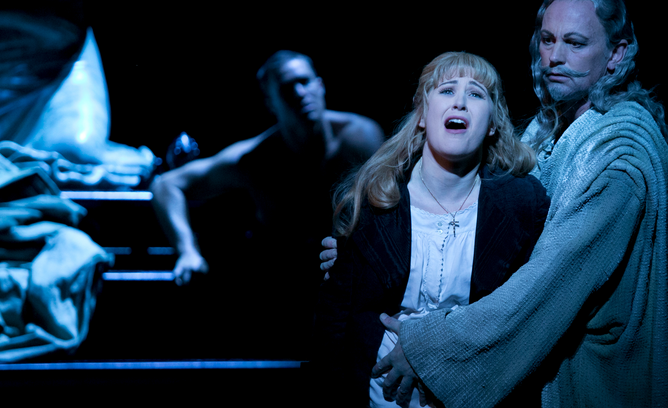
The Italian baritone Giorgio Caoduro, last year’s excellent Rigoletto, is luxury casting as Marguerite’s brother Valentin and makes the third musketeer in an excitingly testosterone-fuelled trio of male soloists. Pitted against Fabiano and Tahu Rhodes he’s more than equal to the task. Avant de quitter ces lieux, a deceptively demanding showcase aria, is dispatched with relative ease and his death scene was a knockout, the line carried with great sensitivity and attention to dramatic detail.
In a refreshingly original take on the trouser role, Anna Dowsley proves a star turn once again as the gawky Siebel – his gammy-leg presumably keeping him out of the army. She acts with understated passion and great realism, making her very, very watchable on stage. And vocally she’s first rate, clear and rich of tone with superlative diction. Domenica Matthews is as “overripe” as a fermenting plum in the role of the randy widow Marthe, relishing the comedy, her blowzy mezzo carrying all before it. Richard Anderson acquits himself well in the small role of Wagner.
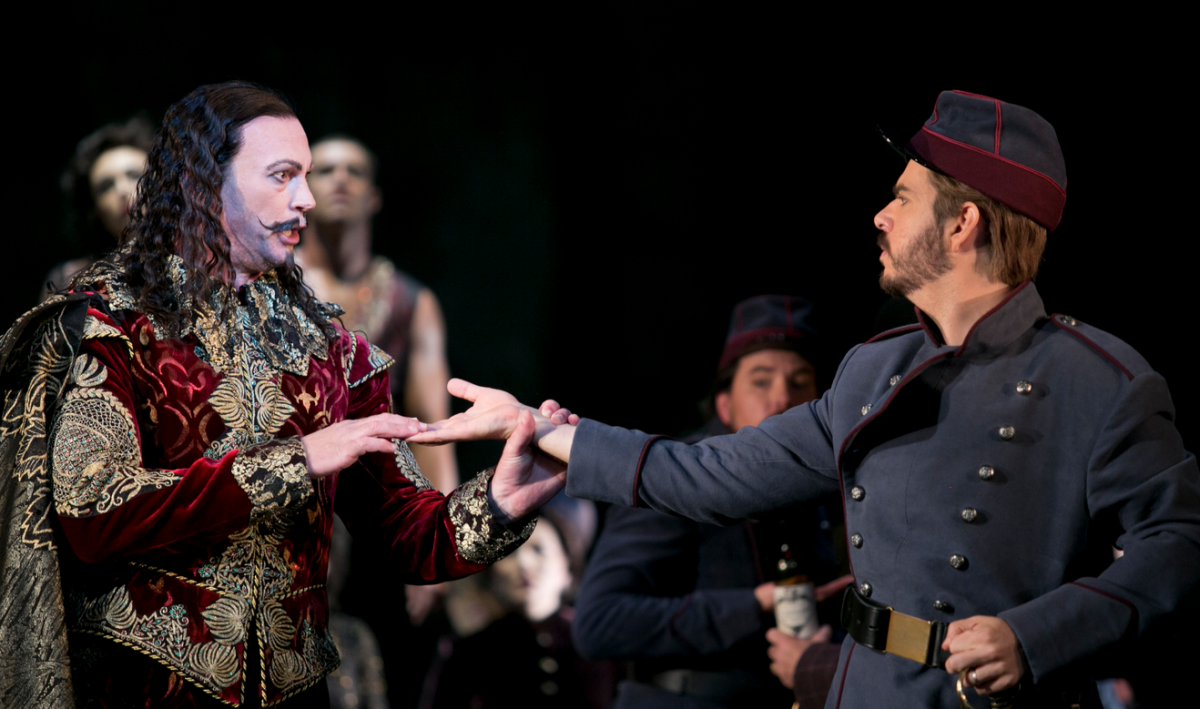
The Australian Opera and Ballet Orchestra under the marvellous French conductor Guillaume Tourniaire put in one of the finest performances they’ve given this season. Tourniaire is a flexible hand on the tiller, drawing out the romanticism of the score without ever feeling the need to rush for adrenalin’s sake. He makes every point count and is particularly sensitive to singers, ensuring that every line is heard. The subtle ebb and flow he brings to an aria such as Avant de quitter ces lieux is an object lesson in making this music live and breath and a testament to musical preparation time well spent. There are some lovely details in the playing too, such as the sinuous violin solo in Salut! Demeure. It’s also a great show for the OA chorus who are given plenty to do in presenting a fully rounded community of petit-bourgeois citizens and militia. The Soldiers’ Chorus is thrilling, of course, but there’s plenty more, especially the exquisite pianissimo entry after the death of Valentin.
With telling imagery, sterling direction from revival director Bruno Ravella, and boasting a faultless cast, this Faust should please traditionalists and progressives alike. And if McVicar’s angel turns out to be an elderly bourgeois in a top hat, it serves as a timely reminder that the censure of politics and religion still holds sway, while theatre, sadly, is just theatre.
Opera Australia’s Faust runs at the Joan Sutherland Theatre Sydney until March 13 with an extra performance just added on Monday March 9 at 6.30pm – on sale now.



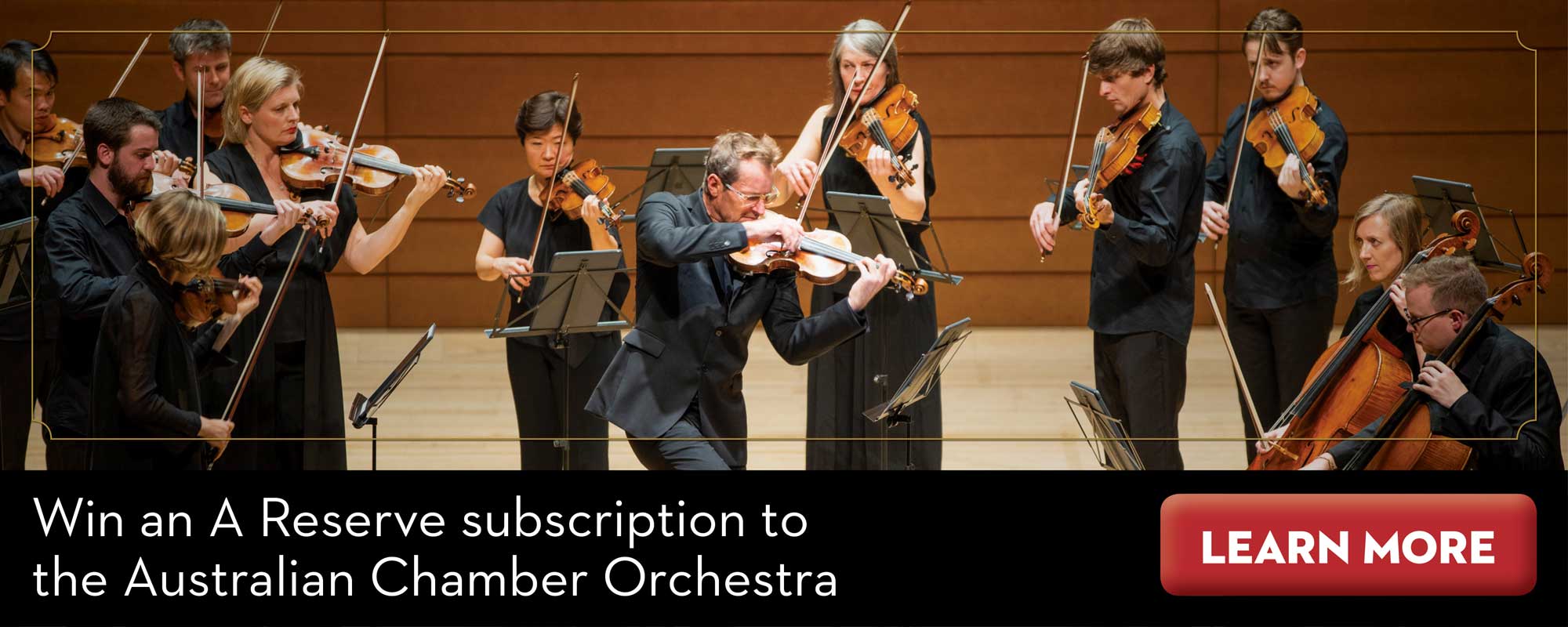









Comments
Log in to join the conversation.